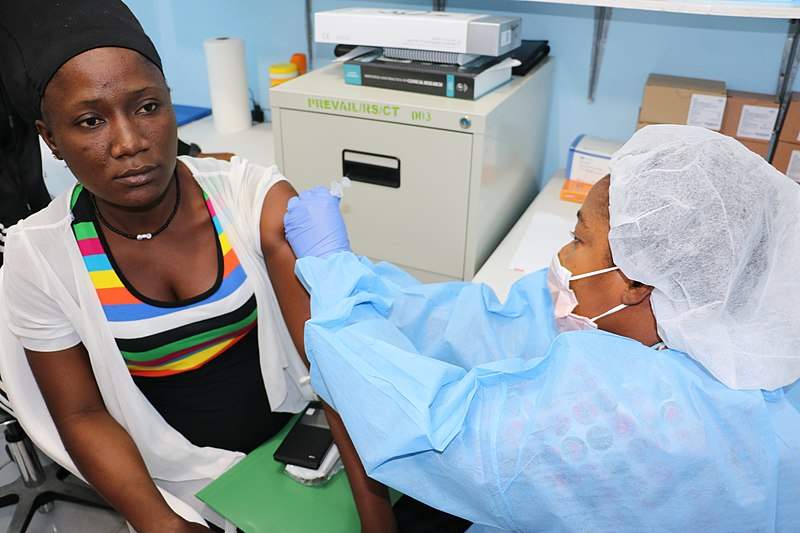On 21 May, the World Health Organization (WHO) announced its support for the use of rVSV-ZEBOV, an experimental Ebola vaccine developed by Merck & Co., in the Democratic Republic of Congo (DRC) to help stop the spread of Ebola. GlobalData views the deployment of rVSV-ZEBOV as a potential landmark case study for how to efficiently evaluate an investigational vaccine’s ability to protect against low incidence, outbreak-prone diseases, as compared with the traditional randomized controlled trial (RCT). The success of rVSV-ZEBOV and its ring vaccination approach to preventing the spread of Ebola will be critical to the future development of vaccines targeted for these types of infectious diseases.
The groundwork for assessing the effectiveness of Merck’s pipeline vaccine during this latest outbreak was largely laid by the 2014–2016 Ebola epidemic, which spread throughout parts of West Africa, reportedly causing 11,000 deaths and costing an estimated $4bn before it was brought under control and extinguished. The high-profile nature of this epidemic drove the pharmaceutical industry to rapidly invest in the development of an Ebola vaccine; Merck’s vaccine was positioned as the clear leader due to its high efficacy being documented in clinical field trials in Guinea at the end of the 2014–2016 Ebola epidemic. The WHO has granted an access/compassionate use protocol for rVSV-ZEBOV, which guides its coordinated use in DRC with relevant Congolese authorities.
Merck’s rVSV-ZEBOV, which provides protection from the Zaire strain of Ebola, will be deployed using a ring vaccination approach where the people who are most likely to be infected receive vaccinations, specifically for at least two degrees of contact for people with confirmed Ebola cases. This includes vaccinations for high-risk groups known to be at increased risk for exposure to Ebola. Community health workers, laboratory workers, surveillance team members, and burial workers are considered part of this high-risk group. Ring vaccination as an immunization strategy is not unprecedented, as it was applied during the final years of the smallpox eradication campaign.
Ebola vaccines: the R&D pipeline
Today, there is an increasing number of Ebola vaccine products in the R&D pipeline. GlaxoSmithKline (GSK) is developing a bivalent Ebola vaccine that provides protection for the Sudan and Zaire viral strains. Janssen, the pharmaceutical division of Johnson & Johnson (J&J), is developing vaccines for protection against the Sudan and Zaire strains of Ebola virus, as well as the related Marburg virus.
Public-private partnerships have been essential to the advancement of Ebola vaccines. For example, Merck & Co.’s vaccine was originally developed by Canadian government laboratories before it was licensed to NewLink Genetics, which then licensed it to Merck. The US National Institutes of Health (NIH) has been involved in the development of GSK’s, Janssen’s, and Merck’s Ebola vaccines, and China and Russia have also supported Ebola vaccine development.
While there have been promising advances in Ebola vaccine development in recent years, difficult ethical dilemmas—which are being partially circumvented by alternatives to RCTs—will require creative human clinical trial approaches for determining vaccine efficacy. This impetus resulted in the ring vaccination approach that was applied in Guinea and is currently being applied in the DRC. The success of this study will have far-reaching implications for the vaccine R&D community.

US Tariffs are shifting - will you react or anticipate?
Don’t let policy changes catch you off guard. Stay proactive with real-time data and expert analysis.
By GlobalDataRelated reports
GlobalData (2018). Expert Insight: NIH Scientist Endorse Platform Manufacturing to Shorten Vaccine Development Timelines, April 2018, GDHC1694EI
GlobalData (2018). Expert Insight: Preparing for the Unknown: WHO Lists “Disease X” as a Priority Disease, March 2018, GDHC1665EI
GlobalData (2016). Expert Insight: Zika: Short-and Long-Term Approaches to Successfully Combat the Outbreak, February 2016, GDHC1013EI
GlobalData (2015). Expert Insight: Three Late-Stage Clinical Trials Propel Merck and NewLink’s Ebola Vaccine Candidate Ahead of the Pack, April 2015, GDHC0875EI
For more insight and data, visit the GlobalData Report Store – Pharmaceutical Technology is part of GlobalData Plc.




